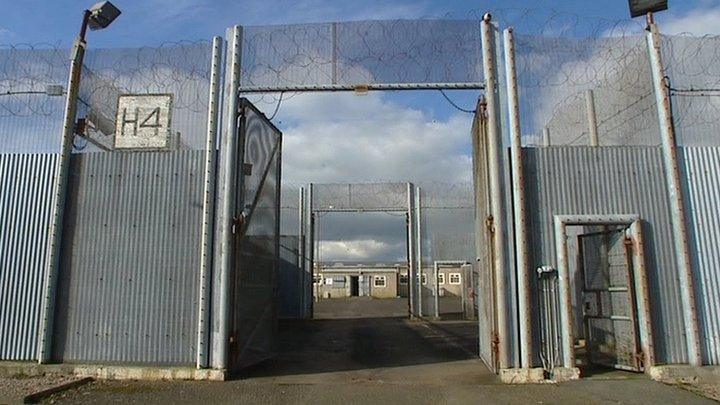UK state papers: On The Runs 'a major problem' by 2000
- Published
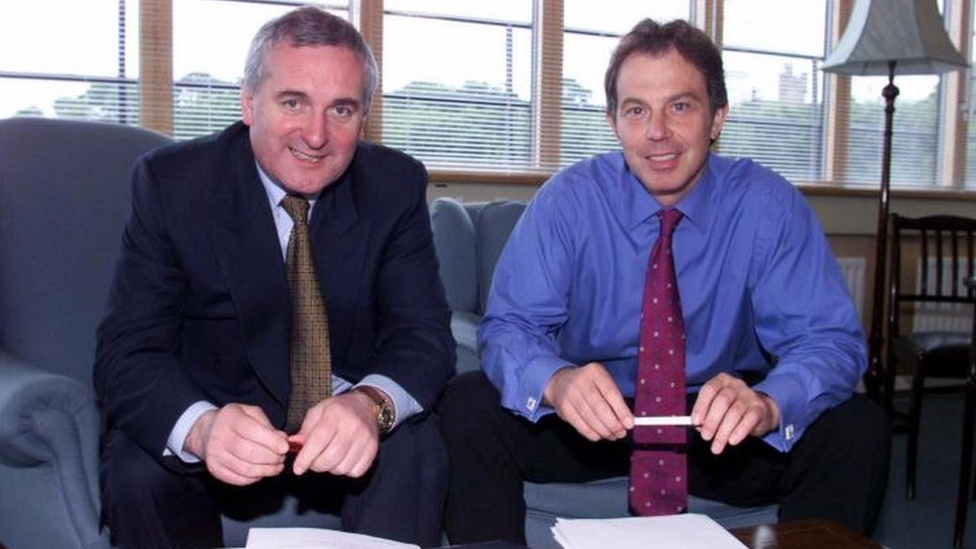
In 2000, two years after the signing of the Good Friday Agreement, Bertie Ahern and Tony Blair were still dealing with its outworkings
On The Runs (OTRs) were seen as "a major problem" by the British government, just two years after the signing of the Good Friday Agreement.
By July 2000, all remaining prisoners eligible for release on licence under the 1998 agreement were to be freed.
But OTRs were not covered by this as they were not in prison at the time.
Correspondence about OTRs and how to deal with them have been released in files dating from 2000 and 2001 by the UK's National Archives.
The fact that Sinn Féin's general secretary at the time was an OTR heightened sensitivities around the issue.
Rita O'Hare had absconded to the Republic of Ireland in 1972 while facing charges for the attempted murder of a British soldier.
Efforts to extradite her failed and by the time of the Good Friday Agreement, she was a key supporter of the process and held an influential role as Sinn Féin's representative in Washington DC.
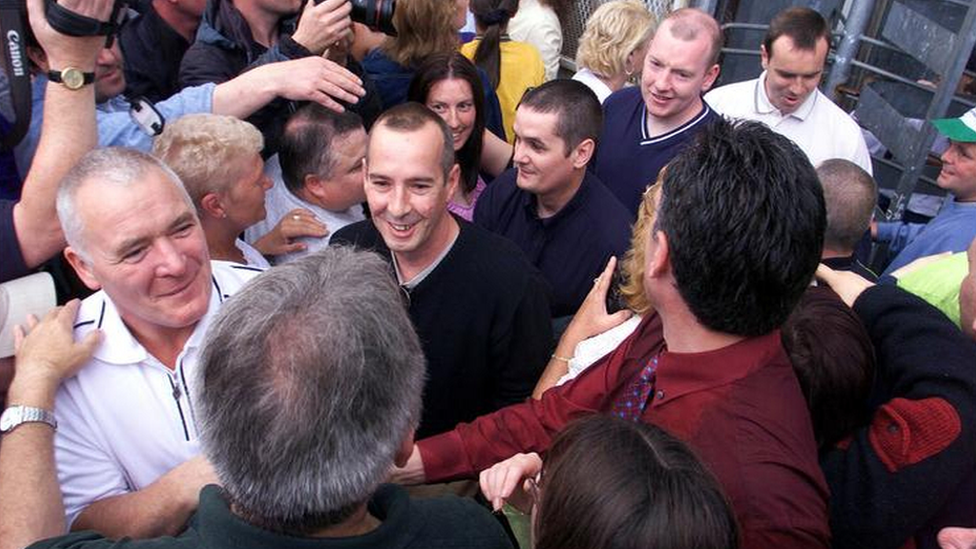
IRA prisoners on early release emerge through the Maze Prison turnstile in 2000
It was then prime minister Tony Blair's special advisor who identified OTRs as a problem, when then secretary of state Peter Mandelson warned of "the head of steam that [Gerry] Adams is getting up on the subject with the White house and the Irish".
Mr Blair felt that it was in the public interest to drop the pursuit of O'Hare.
"Rita O'Hare has played a crucial and positive role in furthering the peace process… That role would be furthered if she could return to Northern Ireland."
He also supported her case on humanitarian grounds - her father, who was in his 80s, was too ill to visit her in the Republic and she "wishes to see him before he dies".
The OTR issue would drag on for more than a decade, before coming to national attention in 2014 when the trial of a man accused of killing four soldiers in 1982 collapsed as he had been given a guarantee that he would not face trial.
It then came to light that more than 180 Irish republicans were given so-called "comfort letters" by the government, designed to give them assurances that they were not being sought by police.
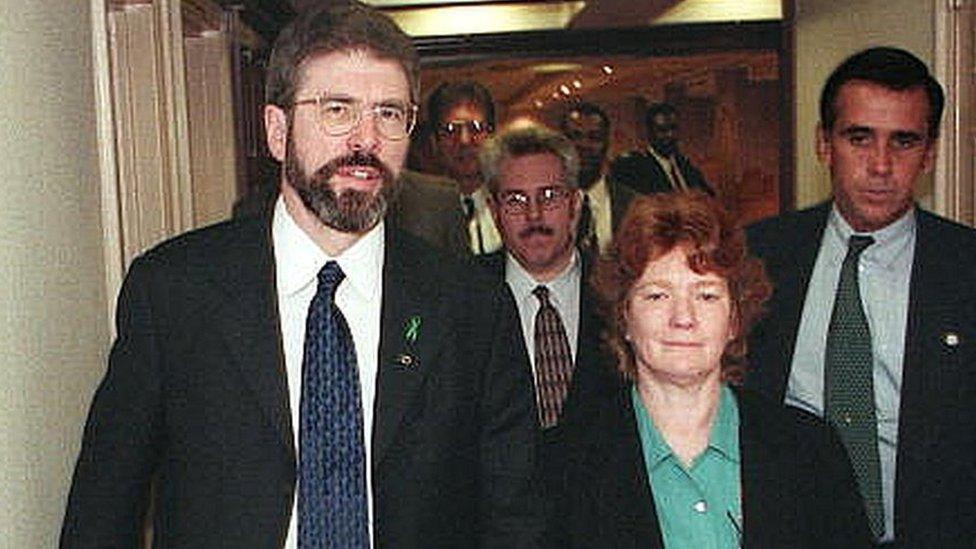
Gerry Adams and Rita O'Hare pictured at a press conference in New York in 1998
Six substantial files from the Prime Minister's Office dealing with Northern Ireland in the year 2000 have been released along with five relating to 2001.
There is a missing file in the 2001 sequence, covering the dates from 5 August to 20 September inclusive.
Momentous moments in that timeframe included the arrest in Colombia of three republicans travelling on false Irish passports, the 9/11 terrorist attacks in New York and the most intense phase of the Holy Cross Primary School stand-off.
When the file sequence resumes on 21 September, the impact of these events becomes clear.
In a telephone call with the prime minister on 8 October, taoiseach (Irish prime minister) Bertie Ahern said that "the Colombia arrests, the events of 11 September and the US reaction to them were all putting intense pressure on the IRA" to decommission.
A further "useful consequence" of 9/11, according to Mr Ahern, was that "even the very limited degree of public support enjoyed by dissident republican groups" had been undermined.
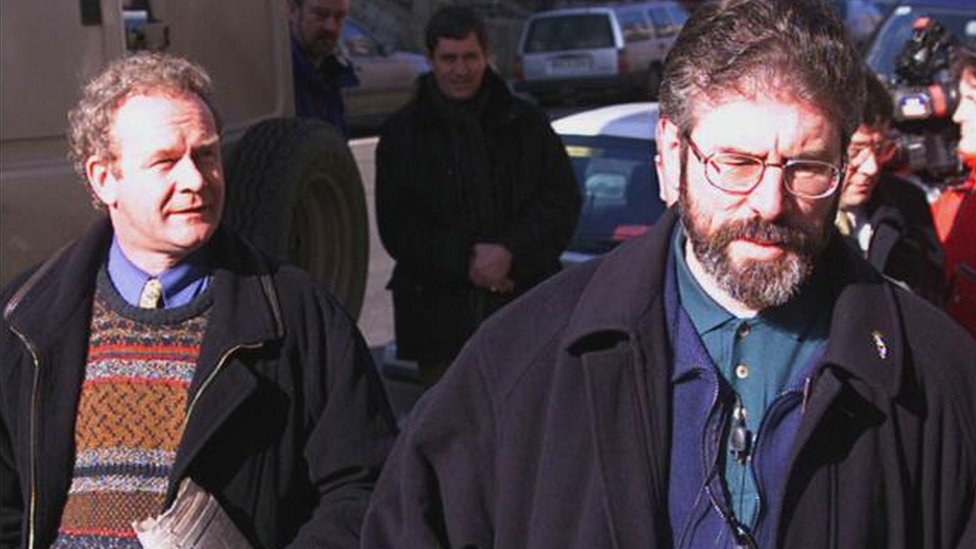
The papers reveal that Bertie Ahern "preferred dealing" with Martin McGuinness (left) over Gerry Adams
Martin McGuinness "admitted frankly" to the taoiseach "that the events of 11 September had altered the political context and that the IRA had been wrong to act as they did in early August".
On personal relationships, Mr Ahern "preferred dealing with McGuinness: Adams was pleasant enough, but hard to get clear answers out of; McGuinness was more straightforward".
And while Mr Ahern felt there was mounting pressure on the IRA to decommission, General John de Chastelain, the chairman of the Independent International Commission on Decommissioning, provided the downbeat assessment that "an event was not about to take place", despite "cautious… optimism" from the Irish.
Sinn Féin wanted some reciprocal benefit for the IRA in response to any act of decommissioning, which would only happen "in the context of decent responses from the British government, the Irish government and the UUP".
The Irish government refused flatly to contemplate the release of the four republicans imprisoned in 1999 for the manslaughter of Detective Garda Gerry McCabe in return for movement on decommissioning.
Their release was "simply not on".
The much-anticipated IRA statement on decommissioning finally came on 23 October 2001 but as the files released do not go beyond 9 October, the archives charting the immediate lead up and response remain closed.
Professor Marie Coleman is Professor of Twentieth Century Irish History at Queen's University Belfast
- Published4 March 2023
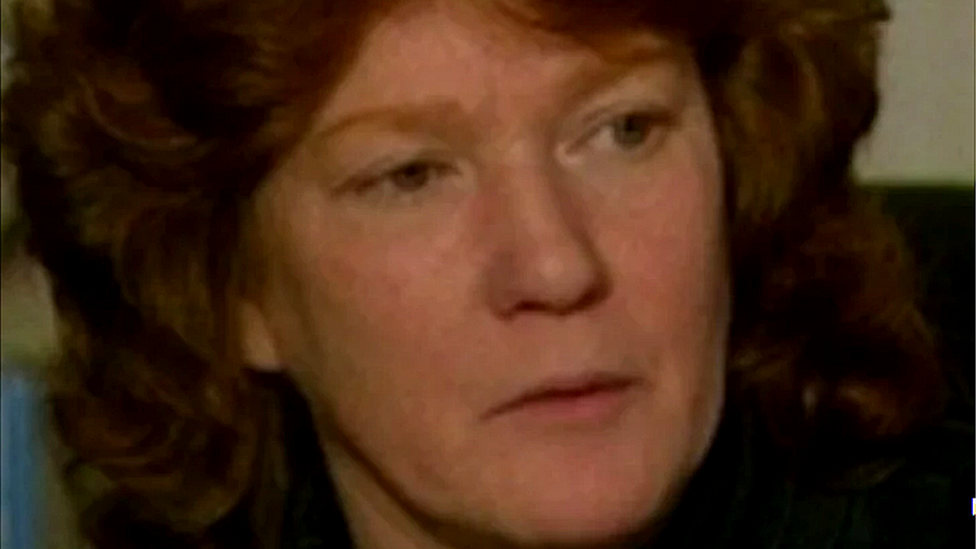
- Published27 February 2014
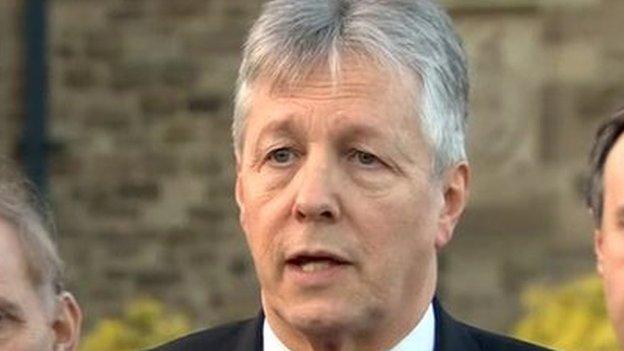
- Published25 February 2014
